The escalating burden of chronic disease is the defining challenge of modern healthcare, driving unsustainable costs and straining clinical resources. Traditional approaches to care planning are static, fragmented, and fail to engage patients, leading to poor outcomes and avoidable utilization.
Doxicloud presents a paradigm shift. We are not just another software vendor; we are a strategic partner enabling providers and payors to succeed in the value-based care era. Our intelligent, AI-powered platform transforms the care plan from a passive document into a dynamic, living engine for care coordination. By unifying data, automating workflows, and empowering both clinicians and patients, doxicloud delivers proven results: improved patient outcomes, enhanced provider satisfaction, and significant reductions in the total cost of care.
This document outlines how Doxicloud’s unique approach to care planning directly addresses the core inefficiencies in chronic care management, providing a clear and compelling return on investment for Medicare, third-party payors, and provider organizations.
2. The Chronic Care Challenge: Fragmentation, Inefficiency, and Rising Costs
The current state of care planning is broken:
- Static and Siloed: Care plans are often PDFs or text documents buried in the EHR, rarely updated after creation, and inaccessible to the full care team.
- Administratively Burdensome: Creating and managing plans manually consumes valuable clinician time that could be spent on patient care.
- Patient-Unfriendly: Plans are often written in clinical jargon, not shared with patients, and fail to drive engagement or self-management.
- Data-Disconnected: Plans are not linked to real-time patient data (e.g., from RPM devices), so they cannot inform proactive interventions.
This failure has direct consequences: medication non-adherence, missed preventive services, uncontrolled chronic conditions, and ultimately, a high rate of preventable emergency department visits and hospitalizations.
3. The doxicloud Solution: An Intelligent, Unified Care Planning Platform
3.1 Core Philosophy: The Dynamic, Living Care Plan
doxicloud redefines the care plan as the central nervous system of patient management. Our philosophy is built on three principles:
- Dynamic & Adaptive: Plans are automatically updated based on new data, clinical events, and patient-reported outcomes.
- Collaborative & Shared: A single, unified plan is accessible and editable by the entire care team (PCP, specialists, nurses, care coordinators) and the patient themselves.
- Actionable & Intelligent: The plan is not a document; it is a workflow engine that generates tasks, alerts, and personalized patient instructions.
3.2 Key Platform Features and Capabilities
- AI-Powered Plan Generation: Our engine uses patient data (problems, medications, lab results, social determinants of health) to instantly generate a personalized, evidence-based draft care plan, reducing initial creation time by over 80%.
- Integrated Patient Portal: Patients access their plan via a intuitive portal and mobile app. They see their goals, tasks, and education in plain language, can track progress, and communicate directly with their care team.
- Automated Care Coordination: The platform automatically:
- Assigns tasks to specific team members based on protocol (e.g., “RN to conduct medication reconciliation post-discharge”).
- Sends secure messages to patients for follow-up and education.
- Triggers RPM device setup and data review workflows based on plan goals.
- Compliance & Billing Engine: The platform automatically logs all time spent on care plan management by clinical staff, generating compliant reports for billing CCM, PCM, and BHI Medicare codes (99490, 99491, 99424, etc.), ensuring maximum appropriate reimbursement.
3.3 Seamless Integration into Clinical Workflow
Doxicloud is designed for usability. It embeds directly into the clinician’s existing workflow, appearing as a contextual sidebar within the EHR or as a standalone web application. It requires minimal training and is adopted quickly by clinical staff because it reduces their burden rather than adding to it.
4. The Evidence Base: How Doxicloud-Driven Care Plans Improve Outcomes and Generate ROI
4.1 Clinical Outcome Improvements
- Improved Disease Control: Practices using doxicloud report a ~15% increase in the number of patients with controlled HbA1c (<8%) and BP (<140/90) within 6 months, due to continuous tracking and intervention.
- Increased Preventive Screening Rates: Automated reminders and patient nudges close care gaps, leading to a 20%+ increase in completion rates for mammograms, colon cancer screenings, and annual foot/eye exams for diabetics.
- Enhanced Medication Adherence: Patient-facing task lists and reminders have shown to improve adherence rates by over 25%, as measured by prescription refill data.
4.2 Operational Efficiency Gains
- ~75% Reduction in Time Spent on Care Plan Creation: AI-drafting cuts documentation time from ~20 minutes to under 5 minutes per patient.
- ~30% Increase in Care Team Capacity: Automated task assignment and patient communication free up nurses and coordinators to manage larger patient panels effectively.
- Streamlined Billing: Automated logging increases accurate billing for chronic care management codes by over 90%, capturing thousands in previously lost revenue.
4.3 Financial Impact and Return on Investment (ROI)
- Reduced Hospital Admissions: By enabling proactive management, doxicloud clients consistently report a 10-20% reduction in avoidable hospitalizations for their chronic care population.
- Lower ED Utilization: A 15-25% reduction in non-emergent ED visits is common, as patients have better tools and access to manage issues at home.
- Increased Reimbursement: Practices fully leverage CCM/RPM billing, generating an average of $120- per enrolled patient per month in new, recurring revenue that directly offsets the cost of the platform and care coordination staff.
5. The Economic Argument: doxicloud as a Strategic Investment, Not an Expenditure
5.1 The Traditional Cost-Center View (The Old Way of Thinking)
- Perspective: “Doxicloud is another software subscription fee. It’s an annual cost of $X per provider. Our IT department will have to manage it. It’s an expenditure that hurts our bottom line.”
- The Flaw: This view is dangerously shortsighted. It ignores the massive revenue leakage from unbilled CCM services and the astronomical cost of uncontrolled patients. It views the platform in isolation, not as a tool to transform care delivery and financial performance.
5.2 The doxicloud Value-Creator View (The New Mandate)
- Perspective: “Doxicloud is the operating company for our value-based care strategy. It is the engine that allows us to efficiently manage risk, improve quality scores, and generate shared savings bonuses. It pays for itself.”
- The Logic: doxicloud directly enables success in value-based contracts (ACOs, MSSP, MA plans) by providing the data and tools to reduce the Total Cost of Care (TCOC). The ROI is measured in avoided averages of $15,000 hospitalizations, not just in software fees.
5.3 Quantifying the doxicloud ROI for Payors and Providers
Scenario for a Medicare Advantage Plan with 10,000 attributed beneficiaries:
- Expected Annual Acute Care Costs: $100 million
- Conservative Impact: A 3% reduction in TCOC driven by doxicloud-enabled care management.
- Annual Savings: 3% of $100M = $3,000,000










